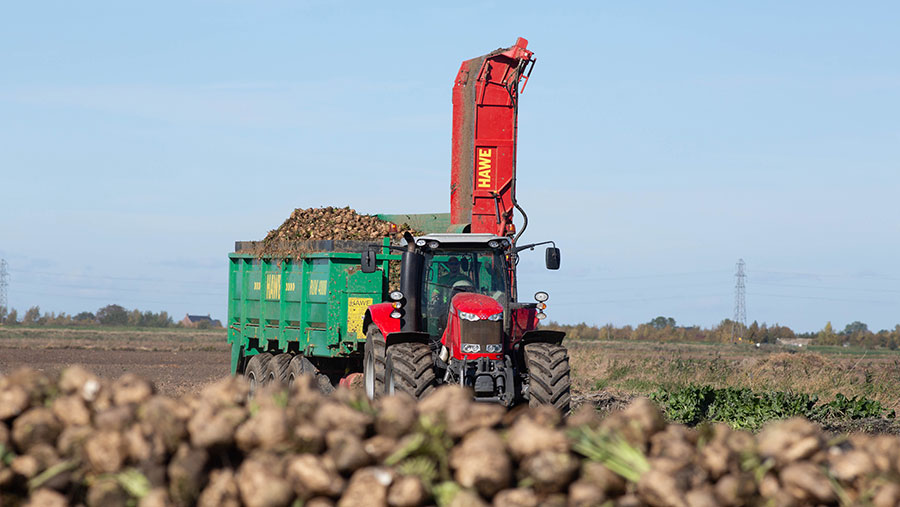Plan for sugar beet to return to Scotland
 © Tim Scrivener
© Tim Scrivener Sugar beet could return to Scotland – almost 50 years after the crop was last processed in the country.
A feasibility study to start growing the crop again suggests it could contribute to climate change mitigation, rather than producing sugar for human consumption.
Growing sugar beet and turning it into bioethanol and new plant-based biotech products would help Scotland meet greenhouse gas reduction targets, suggests the study.
See also: How cover crops can lift sugar beet yields
A refinery would need up to 20,000ha of sugar beet within a 30-60 miles of the refinery, according to a report produced last summer by consultants NNFCC for Scottish Enterprise.
Now a Rural Innovation Support Service group is looking into the feasibility and steps required to re-establish the crop and its processing in eastern Scotland.
It comes almost 50 years after last load of the crop went into the Scottish sugar beet factory at Cupar on 23 December 1971.
‘Resurrected crop’
“A resurrected crop and a new refinery could offer a huge opportunity for agriculture to contribute to CO2 reduction and in the creation of new plant derived products,” said Mr Riddell.
But he acknowledged: “Farmers will also have to factor in the feasibility, risk and reward of growing a crop that is new to most of them.”
That said, Scottish growers already had experience of producing energy beet crops for anaerobic digestion and fodder beet for livestock.
“It should be possible to grow sugar beet, but comprehensive trials will be required to assess yield, sugar content and hardiness of modern varieties in Scottish conditions.”
Farmers would see the project as an opportunity, but also a challenge, said Mr Riddell.
Suitable areas
“Growing conditions are unlike those of the dominant beet growing area of East Anglia where the crop is grown in free-draining sandy loams.
“We’d see the opportunity best suited to the better arable land in Angus, Fife and Perth and Kinross, potentially extending into the Lothians and Aberdeenshire.:
Project collaborators include Scottish Enterprise, the James Hutton Institute, SAOS and the Industrial Biotechnology Innovation Centre (IBioIC ).
Farmers will have a chance to join in shortly through the RISS project.
Scottish Enterprise national opportunities director David Smith said sugar beet could help Scotland cut back on fossil fuels and reach net-zero emissions by 2045.
“If this project is successful, the environmental benefits of sugar beet as an alternative manufacturing feedstock will be investigated for use across a wide range of sectors.”

